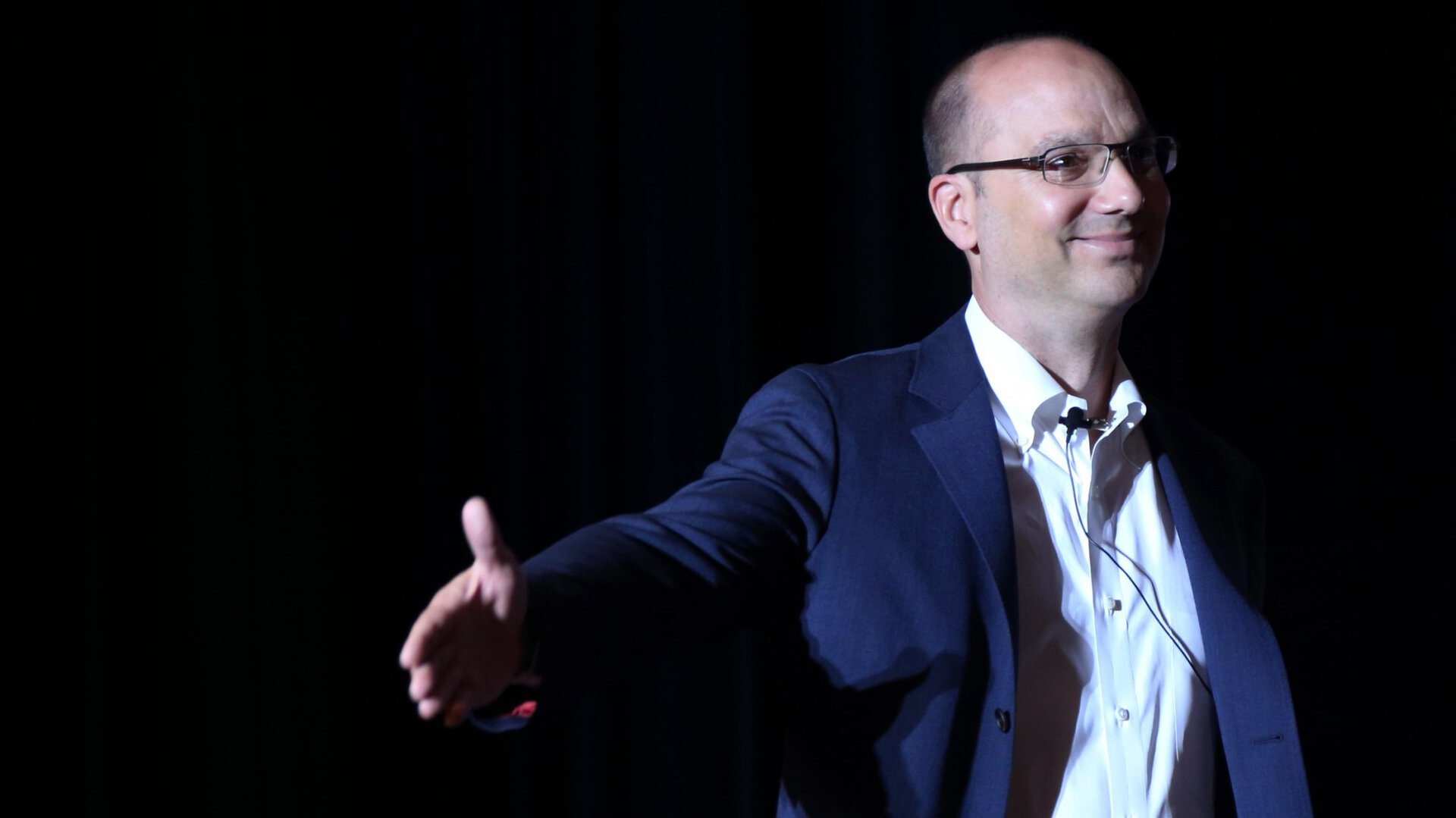Affiliate links on Android Authority may earn us a commission. Learn more.
Android founder Andy Rubin looks beyond mobile to artificial intelligence

Andy Rubin helped build the most widely-adopted mobile operating system in the world, and now he’s looking to the future.
When the Android co-founder left Google back in October 2014, his decision wasn’t necessarily surprising by any means. After all, he played a big role in how most folks around the world connect with each other, so it only makes sense that he would continue his goal to push technology forward as best as he can. We already know of Rubin’s new hardware startup incubator called Playground Global, but how will that help push technology forward in the future? During his talk at Code/Mobile earlier today, we got a good look at what the Father of Android has in store for us.

When asked about the future of technology and computing, Rubin explained that the next big frontier has to do with technology that doesn’t necessarily have to have a screen, such as dishwashers or traffic lights. He’s talking about automation, artificial intelligence, and machines that can take the place of something a person used to do.
What I learned [at Google] is, assuming that the cloud and computing is going to evolve at a rapid pace, neural networks, deep learning and machine learning are also going to continue to evolve. There is a point in time – I have no idea when it is – where there is some form of AI that will be the next computing platform.
“Robotics and automation are going to permeate in our lives”, Rubin continues. And it’s clear that he’s pretty invested in this idea, too. Playground Global just recently invested a massive $15 million in CastAR, an augmented reality startup that’s based in Mountain View, California, among a few other notable projects.
This doesn’t particularly mean that mobile is going away anytime soon, though. Since mobile devices are so personal and in our pockets at all times, he believes that our smartphones will remain the main screen in our lives. Basically, the technology world needs to progress, and the next step, he says, is the introduction of artificial intelligence into our lives. That’s where we’ll see the next big push.
[related_videos align=”center” type=”custom” videos=”623131,615783,595056″]
Rubin went on to talk about what Android has accomplished in its lifetime, and that he’s proud of the team at Google that decided to make Android an open OS. He pointed out that he’s pretty amazed at what you can purchase nowadays that runs Android – phones, tablets, televisions, smartwatches and more. But when asked if there was room for a third major operating system in the mobile space, he explained:
When we pitched Android, we had a deck that said “the world doesn’t need another mobile operating system”. What the world needed was an open operating system. Once you have an open system, innovation will be built on top of it. And it came true!
“The worst thing that would happen from a product perspective would be slowing down innovation,” said Rubin. Not that innovation is dead, by any means, but it has slowed down in recent years. He goes on to say that the most recent interesting thing that’s happened in the technology space in the United States is that users are no longer forced to sign a contract with a mobile service provider.

Previously, you’d walk into your local carrier store, sign up for a new phone number, pay a reduced price for your phone, and then be locked into a two-year contract. Now, with these new types of payment plans such as T-Mobile’s Jump!, AT&T’s Next program and even Apple’s iPhone Upgrade Program you can save money by either leasing a phone through a carrier or making monthly payments on the full price of that phone. He continues:
The carriers have always been “hit makers” — they choose which phones they’ll sell and which will be successful. They thought they had the pulse on what consumers wanted, but they’re not necessarily product companies.[This new system] makes the U.S. look a lot more like China. 80 percent of phones in China are sold open market (not through a wireless carrier). We’re at the beginning, but the U.S. could look more like that in the future.
He also touched on the big “F” word in the Android community… fragmentation. This has been a huge point of contention among fans of mobile technology for some time. During the Q&A section of the talk, when asked if fragmentation was good for consumers, he explained that he doesn’t like to use the word ‘fragmentation’ because it has a negative connotation. He says, “I prefer ‘consumer choice’ as the positive side.” Instead of looking at Android through a fragmented lens, he decided to ask the question “should we write for one screen size?”
And that’s definitely worked out to Android’s advantage, too. This decision to not base Android around one screen size enabled the OS to reach automobiles, televisions, watches and more faster than any other company could.
Before wrapping up the big talk, Rubin touched on some of the things he finds to be too cumbersome in the IoT (Internet of Things) space. For instance, going to bed at night and plugging in five devices isn’t a good experience for the consumer. “As it scales, your door lock, security system, toaster oven, you have to be really careful and thoughtful about how much tech you adopt. I think one of the dangers is one company providing all the tech in your home. The real question is how to do you create interoperability without making the consumer frustrated.”